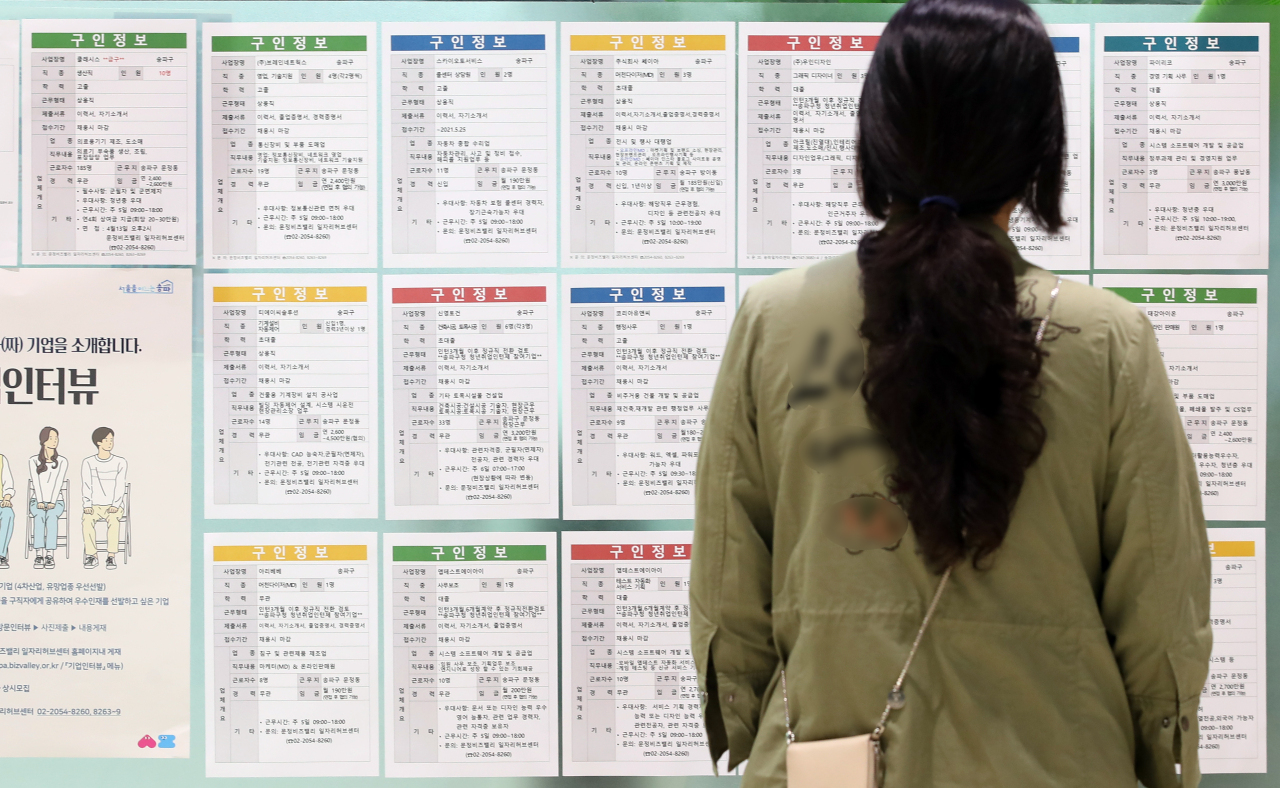 |
A women checks out a bulletin board at a community career center in eastern Seoul, in this photo taken on April 12. (Yonhap) |
South Korea’s income inequality has worsened after the outbreak of the COVID-19 pandemic last year, with rising female unemployment and pay cuts widening the gap, a report from the central bank showed Monday.
The average income earned by the bottom 20 percent here in the April-December period last year declined by 17.1 percent on-year, data compiled by the Bank of Korea showed.
The income loss is larger than those of other income groups, such as the top 20 percent, which shed an average 1.5 percent in the same period. The second-highest income group and the second-lowest groups each shed 2.7 percent and 5.6 percent, respectively.
The data involved 12,138 households of more than two people. Those working in the agriculture, forestry and fishing industry and money earned through emergency cash handouts or government financial support programs were excluded. The BOK explained that it did not take financial aid into account as it could skew the effects of the pandemic on the nation’s income inequality.
Of the bottom 20 percent income group who earned less in those nine months, 36.2 percent was due to job losses, while the remaining 63.8 percent experienced pay cuts. Those classified as economically inactive or unemployed in the group increased 8.7 percentage points on-year.
By specific household units in the bottom 20 percent, “the income and job losses were most noticeable in female-headed households with children,” the BOK said in the report.
Those households saw their average income decline by 23.1 percent in the cited period, according to the BOK, making them the hardest-hit category.
The families suffered the most due to their tendency to work in industries that require a large amount of face-to-face interactions and has a low possibility of remote working, according to the BOK. The pressure of parenting, coupled with the fact that there are more women working as temporary workers, contributed to the high wage loss as well.
“The female-headed households were the most vulnerable to blows tied to the job market and income,” the BOK said.
“This could lead to discontinued careers and become a long-standing factor in worsening the income inequality among genders and income groups, so policies that could alleviate related pressures, such as parenting, should be actively prepared.”
By Jung Min-kyung (
mkjung@heraldcorp.com)








